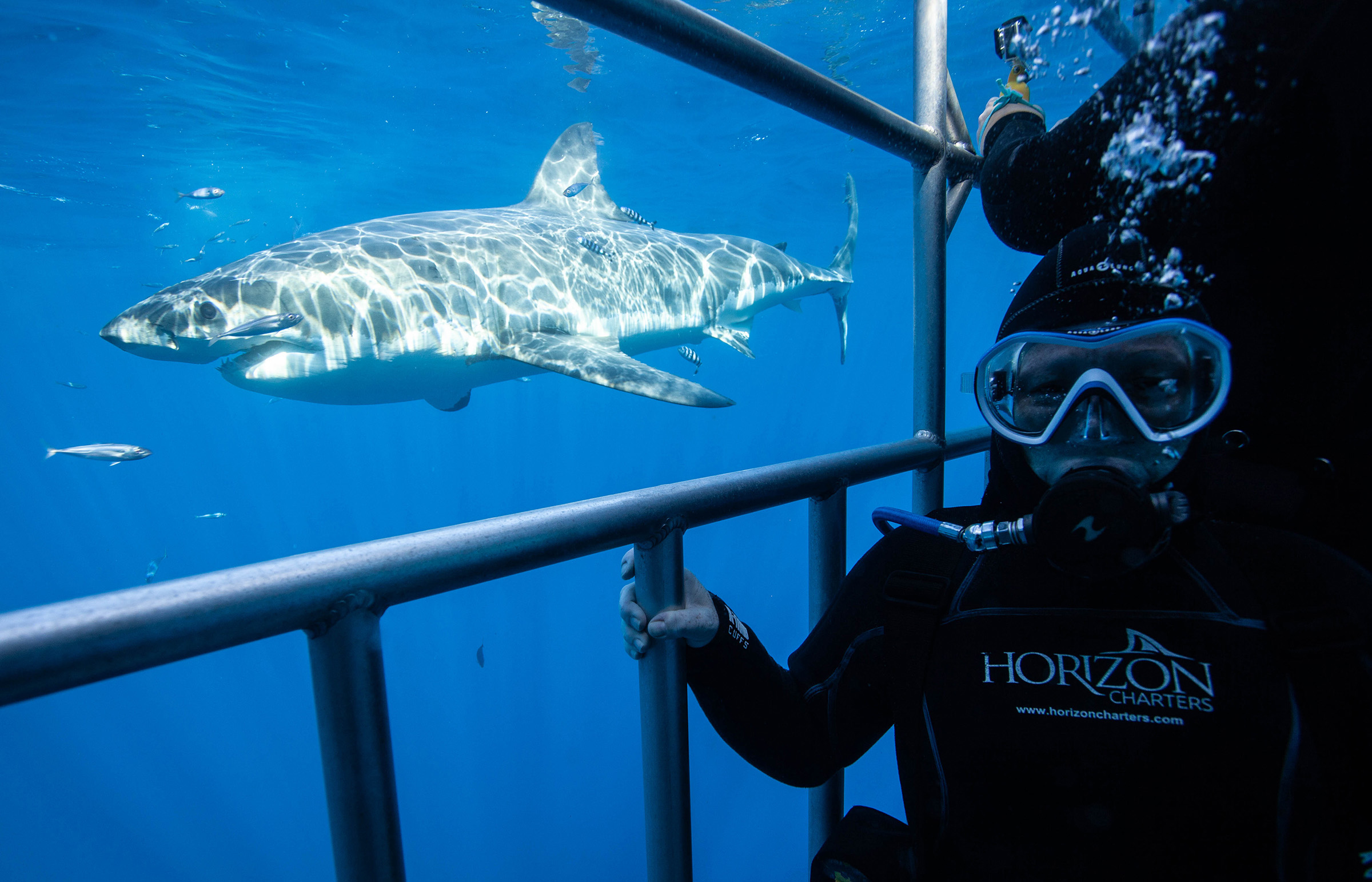  |
| February 6, 2023 |
 The Mexican government has banned cage diving at Guadalupe Island, citing “bad practices” among tour companies. (Lalo Saidy) The Mexican government has banned cage diving at Guadalupe Island, citing “bad practices” among tour companies. (Lalo Saidy) |
By Ryan Fonseca Good morning, and welcome to the Essential California newsletter. It’s Monday, Feb. 6. For tourists, researchers and film crews alike, the best places to see great white sharks are Australia, South Africa and Guadalupe Island, off the coast of Baja California in Mexico. For years, the volcanic island has been a draw for the big fish and the humans who want to see them up close. But now a major part of the shark tourism industry is dead in the water. Last month, the Mexican government banned cage diving at Guadalupe Island, citing “bad practices” among tour companies, such as divers swimming outside of cages, improper use of bait and dumping of pollutants. Some of the affected companies are based out of San Diego and helped pioneer the cage-diving industry. San Diego Union-Tribune reporter Joshua Emerson Smith writes:
Like many other encounters where humans insert themselves into wild animals’ habitats, things can go wrong — and have. Videos show sharks stuck between cage bars and even getting into cages, thrashing about as divers cower. In one video, a shark sinks motionless to the depths after injuring itself on a cage and bleeding profusely. While the practice is controversial, Smith writes, it’s “also a celebration of a once-imperiled species.” Many scientists feared that great whites would go extinct, but conservation laws passed in recent decades have made a difference. Based on some estimates, there are as many as 4,000 great white sharks in the Pacific between Mexico and Alaska. Charter boats from San Diego and around the globe have ferried scientific researchers — trips some credit as crucial to understanding great whites’ migratory and feeding behavior. With the cage-carrying charter boats beached, conservation advocates worry that the door will open to poachers. “A single set of white shark jaws goes for about $5,000. White shark fins can go for up to $10,000,” one longtime tour guide told Smith. “It was the fact that we were there for most of the season that protected these animals.” |
No comments:
Post a Comment